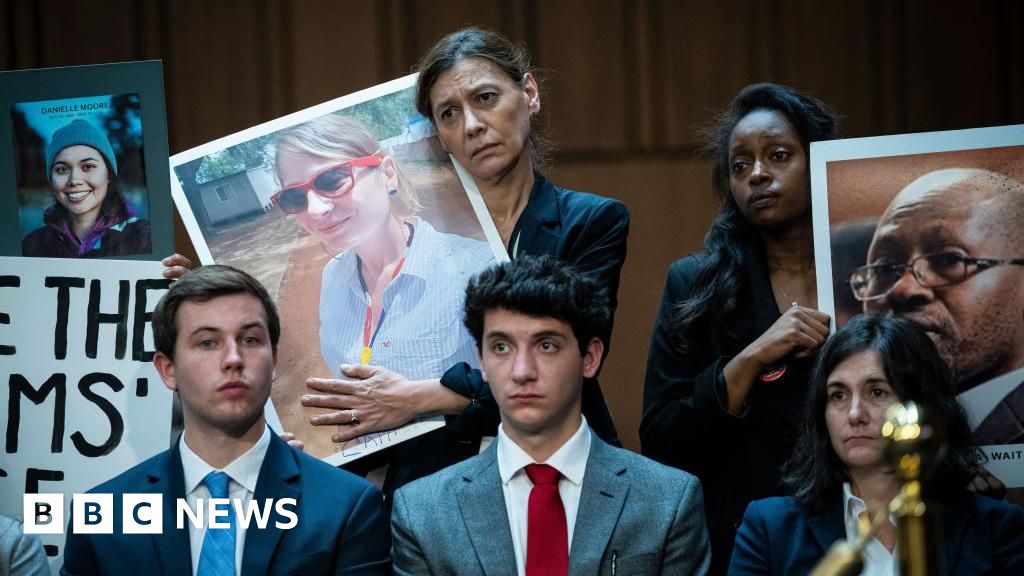ARTICLE AD BOX
 Image source, Owen
Image source, Owen
By Michael Race
Business reporter, BBC News
Owen will no longer be able to see his son over the festive period due to the Christmas rail worker strikes.
The 34-year-old from Doncaster was planning to travel to see his 12-year-old boy who lives with his mother in Derby on 27 December, but will not make it because of the walkouts.
He is one of the thousands of people whose festive plans have been hit by the industrial action, which is a result of the row over pay and conditions coming to a head.
Having supported strikes earlier in the year, Owen says he's now against them due to the festive strikes "ruining" his Christmas.
"I have always been a staunch socialist...but it's been a year now," he says. "Enough is enough."
He admits to feeling "really conflicted" over the strikes and is aware of the impact of "people having their jobs threatened", as he lives in a former mining village.
But like many regular train passengers, Owen has been hit by cancellations and disruption on his commute to work in recent months, which he says destroyed the sympathy he once had for the strikers.
He explains previous strikes have meant he had to cancel plans with his son, who has autism, on four or five occasions, and has now resigned himself to the fact that he's not likely to see him now until the middle of January.
"I will phone him and have a chat [and say] I'm really sorry," he says.
Some 40,000 workers that are members of the UK's biggest rail union, the RMT, will walk out in series of strikes across across four 48-hour periods - on 13-14 December, 16-17 December, 3-4 January and 6-7 January. Disruption is likely on the days around the strikes as well.
A section of rail workers who are employed by Network Rail, will also down tools from 18:00 GMT on 24 December until 27 December.
Amelie, who is a student at Exeter University, says she has had to change her train tickets four times due to the strikes.
The 19-year-old had planned to travel to her family home near Middlesbrough on 16 December, but is now making the journey a week earlier on Friday to avoid any further disruption.
Image source, Amelie
Image caption,Amelie says she is having to miss a week of lectures to get home for Christmas
"I'm missing a full week of teaching - it's not great for my degree," says the theology and religion student, who highlights that her studies have already been hit by the university strikes.
The second year student says she's lost between £50 and £60 through having to rebook trains and fears she will have to rearrange her return train journey due to more strikes planned in early January.
She says she can understand the reasons for striking, but adds: "We are all in the same cost-of-living crisis.
"It's an unfair deal for everyone really. I'm all for making a stance and justice but not when it's affecting every single group of people - taking out education which is so vital."
It is not just passengers' festive plans that will be hit by the industrial action, but also businesses, particularly retailers and hospitality venues, in the run-up to the big day.
Having suffered for the past two Christmases due to Covid restrictions, many were hoping for a bumper year, but that might not be possible now due to the disruption.
Abhilash, a co-founder of Chai Guys, which brews and sells authentic Indian chai tea in Old Spitalfields Market and Covent Garden in London, says the previous rail strikes have resulted in footfall at his stores dropping by 15-20%.
He and his business partner Gabriel started the company in 2019 and managed to survive the pandemic by selling chai brewing kits online.
The 27-year-old says that while the rail strikes are "inconvenient" for people visiting London and buying chai, he just hopes the dispute between the unions and train companies will be resolved.
Image source, ChaiGuys
Image caption,Abhilash (left) and Gabriel (right) see the strikes as an inconvenience for customers
"For me I understand the strikes, I understand the general sentiment in the country right now with how they feel," Abhilash says.
He explains how at this time of year businesses like his see a spike in footfall with people travelling to London to shop and see theatre shows.
But he says the strikes are discouraging people from going into the capital, which is hitting retailers' profits.
However, having launched the business in 2019 and being forced to close during Covid lockdowns, Abhilash says he and Gabriel are used to being agile and will "do whatever we can to maintain our business".
The RMT has staged a series of strikes since the summer which have cause widespread disruption.
RMT general secretary Mick Lynch has said he regrets the inconvenience caused but argues the government is ultimately to blame.
The union is calling for a settlement which offers "long-term job security, a decent pay rise and protecting working conditions".
It has rejected a pay offer from train operators and plans to hold a referendum for members over a second deal from Network Rail, which it has urged them not to back.
Tim Shoveller, Network Rail's chief negotiator, has accused the union of "using the British public and Network Rail workers as pawns in a fight with the government".
Additional reporting from the BBC's UGC team.

 2 years ago
52
2 years ago
52








 English (US) ·
English (US) ·